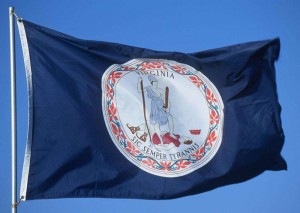 The Virginia legislature rejected HB 2382, a bill protecting the First Amendment rights of student journalists, on Monday after the House Education Subcommittee produced a tie vote. The bill was written to return K – 12 and public colleges and universities to the Tinker standard of free speech, eliminating the ability for administrators to censor journalists and yearbook staff based on optics or other whims.
The Virginia legislature rejected HB 2382, a bill protecting the First Amendment rights of student journalists, on Monday after the House Education Subcommittee produced a tie vote. The bill was written to return K – 12 and public colleges and universities to the Tinker standard of free speech, eliminating the ability for administrators to censor journalists and yearbook staff based on optics or other whims.
HB 2382 is part of a nationwide movement of New Voices Legislation aimed at returning students First Amendment rights to the pre-Hazelwood level. Hazelwood was a Supreme Court decision over 30 years ago that opened up students to censorship from school administrators. Before Hazelwood, student’s First Amendment rights were protected by the court decision in Tinker v. Des Moines Independent School District. An excerpt from the Student Press Law Center explains the difference in court rulings,
“The Tinker Standard (1967) protects student speech unless it is libelous, an invasion of privacy or creates a ‘clear and present danger’ or a ‘material and substantial disruption’ of the school. The Hazelwood decision (1988) allowed administrators to easily justify censorship of legitimate speech in curricular settings.”
According to The Washington Post, much like the Tinker ruling, HB 2382 would have protected “school-sponsored media,” from “administrative censorship or disciplinary action unless content:
- Was libelous or slanderous material
- Unjustifiably invaded privacy
- Violated federal or state law
- Created or incited students to create a clear and present danger
The bill was sponsored by Del. Chris Hurst and co-sponsored by Del. Danica Roem, who was a professional journalist before being recently elected to Virginia’s State Legislature. The House Education Subcommittee heard testimony from students and teachers from all over the state, before voting on the bill. According to The Washington Post,
Kate Carson, a former writer and editor for “The Lasso,” the student newspaper at George Mason High School in Falls Church, said her school’s administration censored several controversial topics the publication attempted to cover, including bathroom vandalism, absence policy abuse and a sexting scandal.
“As student journalists, we were perfectly positioned to report on these issues and separate fact from rumor,” Carson said. “Instead, The Lasso was censored when we attempted to cover the vandalism and policy abuse. We didn’t even attempt to cover the sexting scandal.”
Another testimony from a faculty advisor spoke about how the school paper was shut down and the advisor removed because they ran a story about the school’s renovation, which the administration obviously did not care for.
HB 2382 was one of five New Voices Legislations introduced in 2019. The other bills were introduced in Hawaii, Missouri, Nebraska, and New York. Hopefully those states will have more luck than Virginia did in supporting the First Amendment rights of students. But in 2018, seven New Voices bills were introduced in different states, and only one became law, making Washington the newest of the 14 states that offer pre-Hazelwood protection to their students.
Support CBLDF in the fight for free expression at every age by becoming a member in 2019! Or check out the Reward Zone to make a one-time donation and snag some free speech gear to show off your favorite amendment!